How Sam Altman and Elon Musk went from friends to bitter enemies
The two tech titans are in the meanest fight in business. The stakes couldn’t be higher.
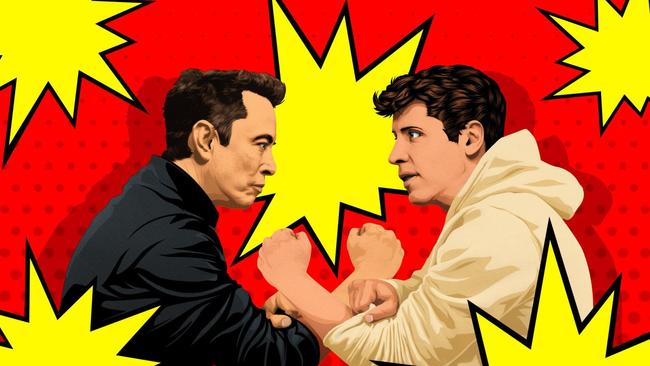
On the first full day of the second Trump presidency, Elon Musk was in the White House complex when he got word that his nemesis was about to hold a press conference with the president. He turned on the television and watched as OpenAI’s chief executive, Sam Altman, and a beaming Donald Trump touted a $US500 billion investment in AI infrastructure called Stargate.
Despite having rarely left the president’s side over the preceding few months, Musk was blindsided by the announcement, according to people familiar with the matter.
Musk fumed to aides and allies about the announcement, claiming Stargate’s backers didn’t have the money they needed. The deepest cut was Altman’s success navigating Trump-world, via a carefully co-ordinated series of recent meetings in Palm Beach and phone calls with the White House, while keeping the plan secret from the president’s “first buddy.” Altman and Musk co-founded OpenAI in 2015, but their relationship soured when Musk left in 2018 following a power struggle. It worsened when Musk responded to the launch of ChatGPT by launching his own rival start-up, xAI.
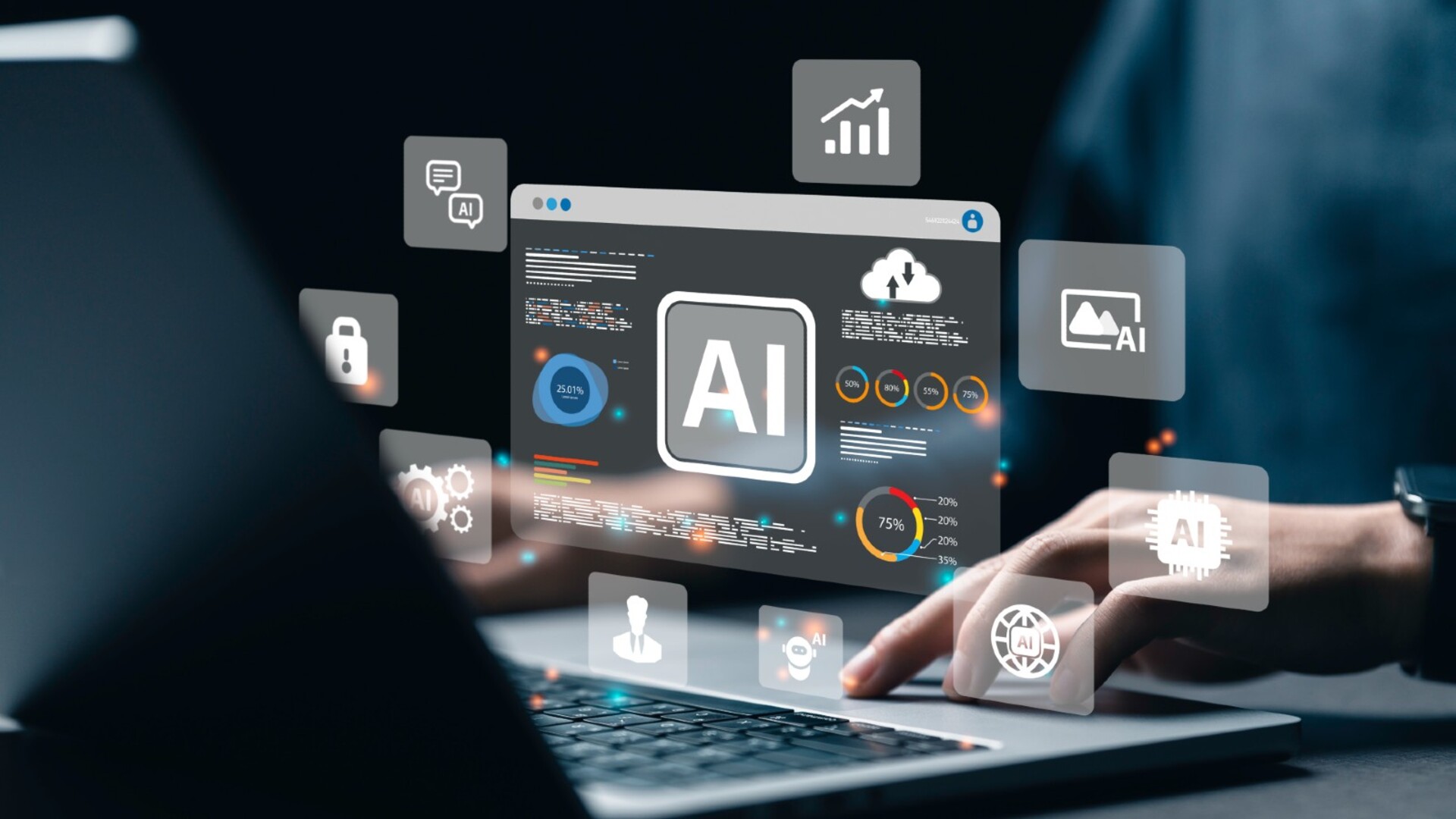
This week the feud went nuclear when Musk followed the Stargate unveiling with his own bombshell: a hostile $US97.4 billion bid for the assets of the non-profit that controls OpenAI. A decade after joining forces, they are now fighting for control of the very thing that brought them together in one of the highest-stakes and most personal fights in recent business history. The outcome could determine everything from the future of a world-changing technology to who will help set the nation’s technology agenda with a new president.
This article is based on conversations with more than a dozen people familiar with Altman and Musk’s relationship over the years, as well as OpenAI and Musk’s business and political decisions.
In many ways, Sam Altman, 39, and Elon Musk, 53, couldn’t be more different. While Musk was beaten up and verbally abused as a child, Altman was a teacher’s pet whose parents routinely told him he could be whatever he wanted to be. Where Musk was often abrasive, Altman tended to tell people what they wanted to hear. And while Musk is an engineer, steeping himself in the details of rocket and battery design, Altman is a technology-obsessed intellectual, reading widely across philosophy, science and literature and penning essays on how society should organise itself.
But both have a strikingly similar taste for power.
For years, the millennial Altman looked up to the Gen X Musk as a hero, a real-life Tony Stark who provided a counterexample to the country’s technological stagnation that Altman railed against when he was president of the start-up accelerator Y Combinator. Altman met Musk years earlier when Y Combinator partner Geoff Ralson introduced them, and helped arrange for Altman to tour Musk’s SpaceX rocket factory.
Altman’s time leading Y Combinator – from 2014 to 2019 – put him at the epicentre of power in Silicon Valley. He became known as a fixer with an unrivalled Rolodex who could call in favours for the start-ups he invested in, or punish investors who crossed them. His special talent was raising money, which he would do by arriving in his signature uniform of jeans and sneakers, curl his small frame up cross-legged in a conference room chair, and unspool a vision so grandiose, compelling and earnest that it often seemed like investors were powerless to keep from funding his projects.
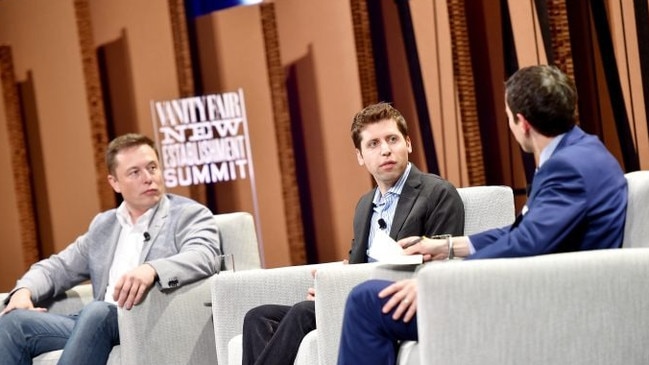
In early 2015, Musk and Altman began having regular dinners each Wednesday in the Bay Area. Their conversations tended toward the apocalyptic: how the world might end, how they might prepare for it, to where they might have to flee. A likely cause, they agreed, would be artificial intelligence that grows smarter than humans and impossible to control.
That May, Altman suggested they create a “Manhattan Project” to develop artificial general intelligence, or AGI, that is as smart as humans at most tasks. They wanted to ensure Google, which had a huge lead in developing the technology, didn’t end up deciding what it would mean for the human race.
By the end of the year, Musk and Altman joined forces to create a new, non-profit AI lab called OpenAI backed by up to $1 billion, which Musk pledged to supply the lion’s share of. Musk and Altman would lead it as co-chairmen.
A couple months before OpenAI was announced, Altman and Musk appeared together on stage at a Vanity Fair conference, both stuffed awkwardly into blazers, Altman’s sneakers as loud as ever, and agreed with each other on various topics, including the wisdom of “nuking Mars” (to heat it up and create an atmosphere).
Their relationship began to disintegrate in 2017, after OpenAI researchers realised they would need far more money than a non-profit could raise to develop advanced AI. The management team agreed to explore some kind of transition to a for-profit company, according to internal emails submitted in court documents. But they couldn’t agree on how to structure it. According to one of the emails, Musk demanded majority control and to be CEO.
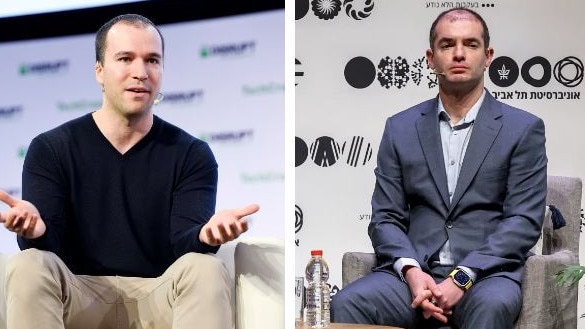
Altman’s successful move to block his mentor would mark the beginning of their rupture. He convinced another co-founder, Greg Brockman, to back him over Musk. Brockman reeled in OpenAI’s chief scientist, Ilya Sutskever, to also back Altman.
Brockman and Sutskever wrote in an email to Musk that since OpenAI was founded “to avoid an AGI dictatorship,” it seemed like “a bad idea to create a structure where you could become a dictator if you chose to.”
Within hours, Musk wrote back that “this is the final straw.” By early 2018, he had left the company, and Altman took over leadership.
Over the next few years, OpenAI continued to quietly focus on research. Then on Nov. 30, 2022, it released a new product called ChatGPT. “this is an early demo of what’s possible (still a lot of limitations – it’s very much a research release)” Altman wrote on X.
That research release turned out to be one of the most successful and transformative consumer-technology products of the century, in the company of the iPhone, Facebook and TikTok.
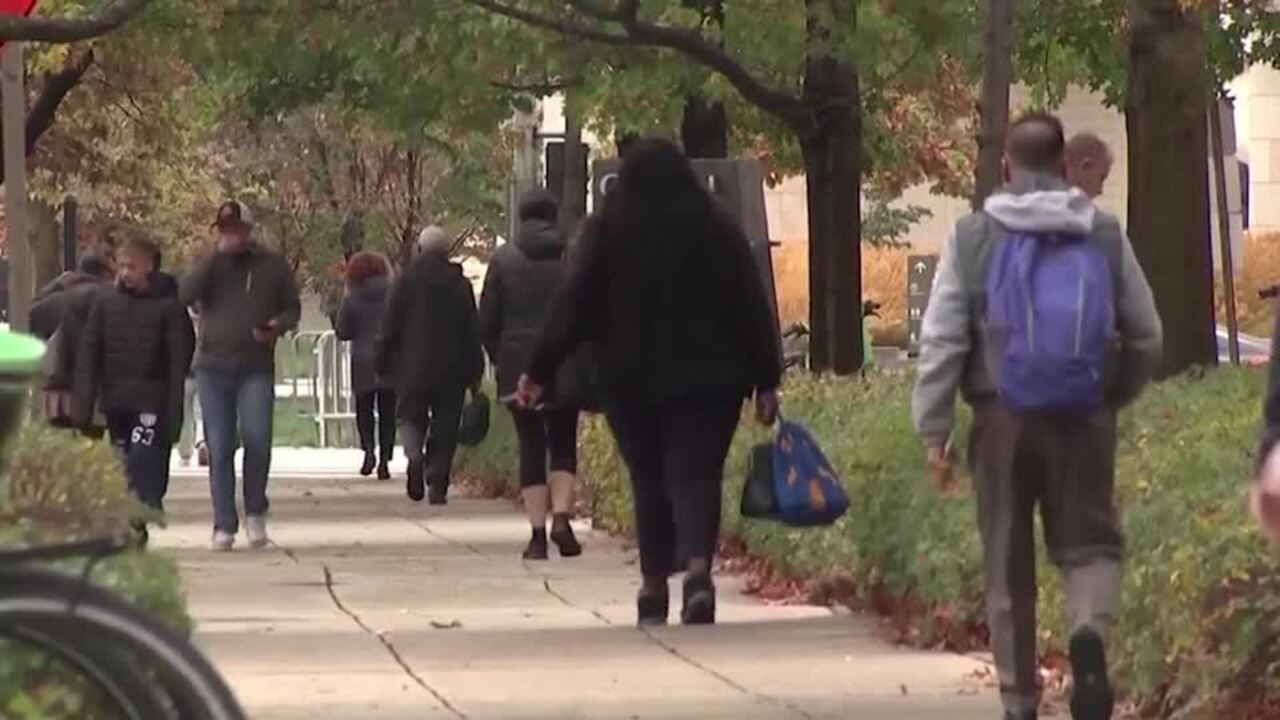
As shocked as the rest of the world that AI had gone mainstream and upset that he wasn’t part of it, Musk began publicly criticising OpenAI for moving too fast and not taking safety seriously. He signed an open letter calling for a six-month pause on AI development.
Within a few months, Musk launched his own for-profit, open-source artificial-intelligence company, xAI, but its technology and market impact have lagged well behind OpenAI. Musk hoped he would become a serious rival to Altman, but didn’t even become a nuisance.
In 2024, he attacked Altman in a new venue: court. After suing OpenAI and its CEO that February, he withdrew the suit in June, refiled it in August, and amended it in November. His primary complaint was that Altman had allegedly violated their original agreement that OpenAI would prioritise the public good over profit.
“The perfidy and deceit are of Shakespearean proportions,” Musk’s lawyers declared. Altman said Musk was bitter he left before the company succeeded.
As Musk’s legal attacks escalated, Altman watched with growing alarm as Musk grew closer and closer to Donald Trump, campaigning by his side and spending hundreds of millions of dollars to support him.
The OpenAI CEO was a lifelong Democrat who once said Trump’s principles represented an “unacceptable threat to America.” His company had few ties to Trump and his circle of advisers and began trying to work its way in.
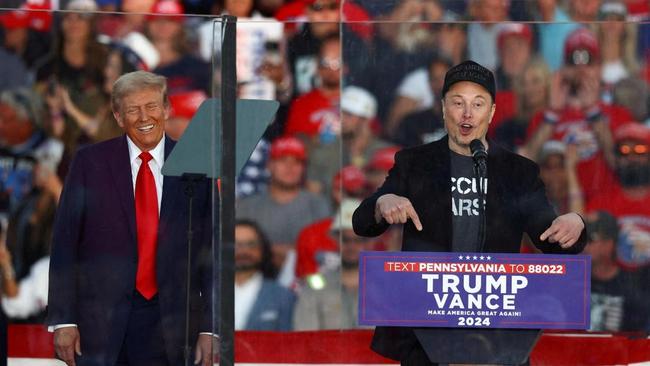
Musk proved a formidable obstacle. His hatred of his former protégé was so well-known at Mar-a-Lago that people close to Trump were wary of passing on Altman’s entreaties.
So Altman tried to work around Musk. In December, he greenlighted a technology partnership between OpenAI and the defence start-up Anduril, whose co-founder Palmer Luckey is one of the tech industry’s most notable Trump supporters. Musk expressed frustration to some associates about the deal.
More recently, Altman tried to connect OpenAI to a Trump family member. He unsuccessfully lobbied Republican-aligned venture firm 1789 Capital to invest – it is led by financier Omeed Malik, and Donald Trump Jr. joined the firm in November. A spokesman for 1789 declined to comment.
Altman’s advisers told him that to avoid unpleasant run-ins with Musk at Mar-a-Lago, he should schedule meetings with Trump allies elsewhere in Palm Beach.
One of those meetings was with Howard Lutnick, co-head of the presidential transition. Altman told him OpenAI was committed to investing billions of dollars into US data centres.
Altman presented it as a potential signature Trump initiative. The project, known inside OpenAI as Stargate, had been in the works for years.
Altman first mentioned Stargate to OpenAI’s board in 2023 as a way to vastly increase the computing power his company could tap to develop and operate AI.
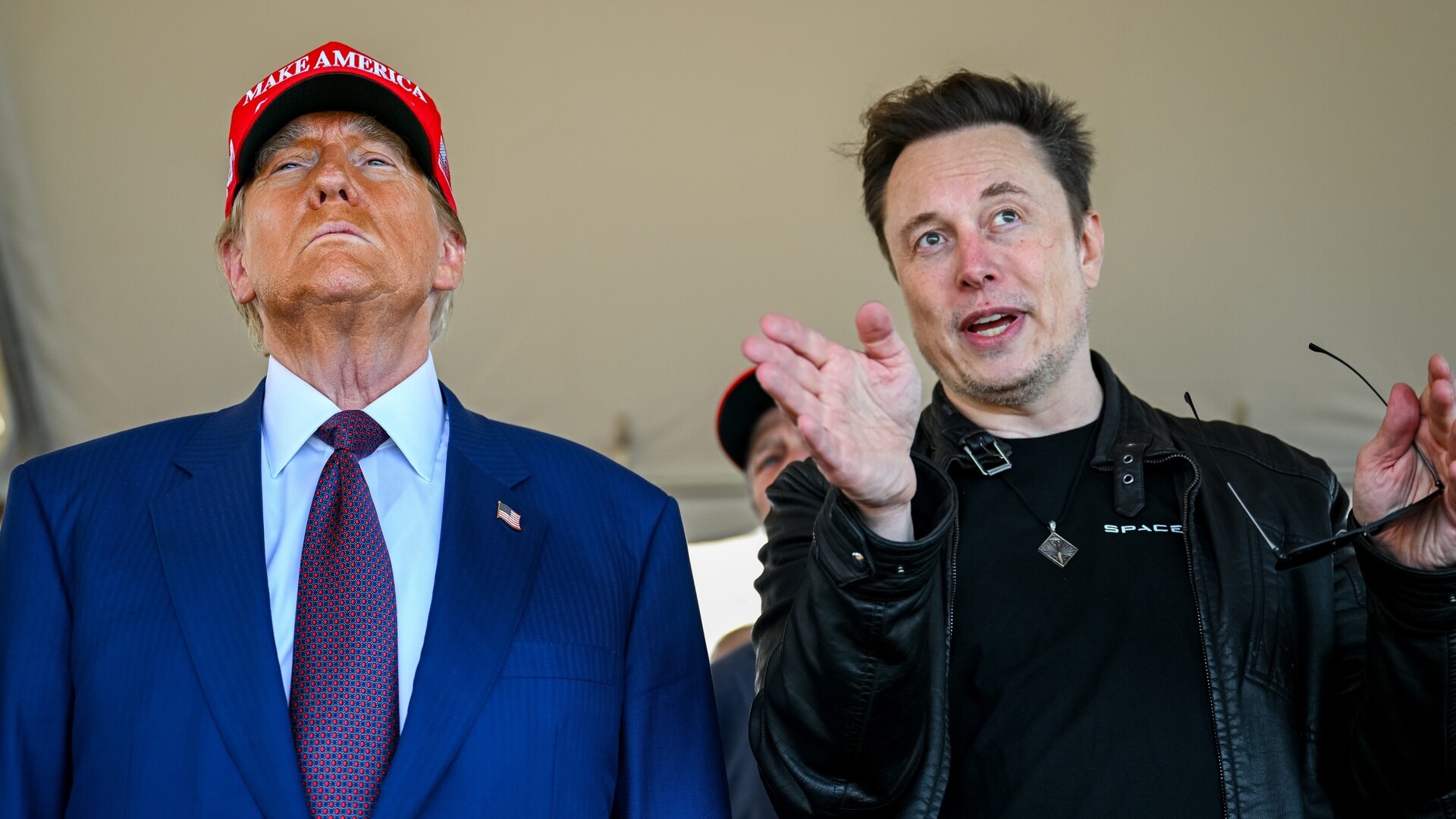
He originally brought the idea to Microsoft, asking it to invest upward of $100 billion. But, in the wake of an episode in 2023 when Altman was ousted from the CEO perch for five days, the tech giant baulked.
Altman soon found partners. One was SoftBank, the Japanese conglomerate whose outspoken chief, Masayoshi Son, is known for making huge bets on charismatic entrepreneurs. Altman had known him since his Y Combinator days.
The second was Larry Ellison, a longtime friend of Musk’s who was hung out to dry when xAI pulled out of a Texas data-centre project that Ellison’s company, Oracle, was working on. Altman agreed OpenAI would take it over. The project grew into the foundation for Stargate.
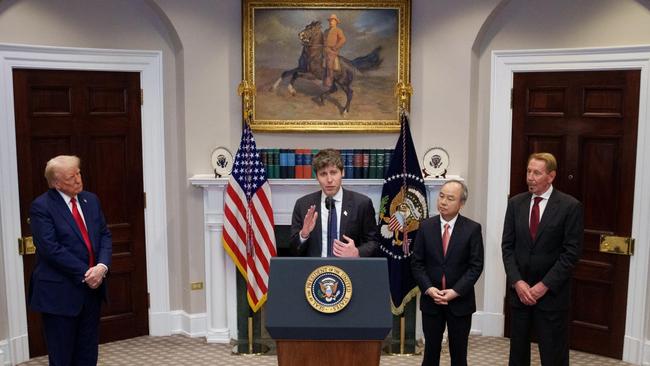
Beyond their deep pockets and technological capabilities, Son and Ellison brought Altman another advantage: Both had relationships with Trump dating back years.
In December, Son played golf with the president-elect at Mar-a-Lago and announced his intention to invest $US100 billion in US infrastructure projects alongside Trump and Lutnick. Their press conference effectively previewed Stargate without making any of the details public – which ensured Musk still didn’t know about OpenAI’s involvement.
Son also met with Ellison at his nearby estate.
Four days before the inauguration, Ellison helped broker a call between Altman and Trump to discuss the initiative. As Altman sketched out his ambitious plans to invest in AI infrastructure in the US, Trump peppered him with questions about the building process, drawing on his years of experience building hotels, casinos and golf courses.
Altman came to the inauguration festivities, but he didn’t sit with other tech CEOs alongside Musk. He told others he wanted to avoid any kind of public run-in with Musk.
The next day, Altman and his partners arrived at the White House, where they more fully explained their plans for Stargate to Trump. Trump told the group he wanted to go ahead with the announcement. The new president loved that they were aiming to invest $US500 billion during his term – a number sure to make headlines.
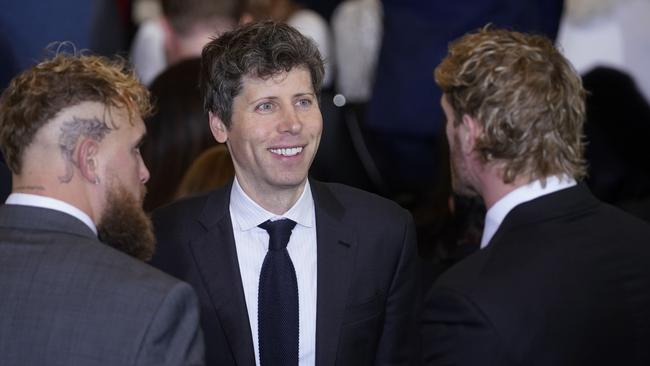
Announcing that figure was a risk. Stargate needed outside money and key investors hadn’t finalised their specific commitments. But Altman had achieved his goal of blindsiding Musk.
The head of the new Department of Governmental Efficiency fumed to aides about how the partners didn’t really have the funding lined up for the project.
He called the project “fake” on X – shocking some Trump allies with the tech billionaire’s public break from the president.
Musk was already plotting a counter move, and had been considering making a bid for the non-profit that controls OpenAI since early January. By the middle of the month, his team had begun engaging with potential co-investors for a bid.
Musk said he was inspired to make the bid in part because OpenAI was in the midst of becoming a for-profit company and he believed Altman planned to undervalue the assets of the non-profit, which would become an independent charity with a stake in the for-profit.
But Musk’s more primal message for the investors: Let’s go to war with Sam Altman.
Altman was at the Paris AI Summit when news of Musk’s $US97 billion bid was reported by The Wall Street Journal. He scrambled to come up with a response, telling employees in a Slack message that this was yet another one of Musk’s tactics to derail OpenAI.
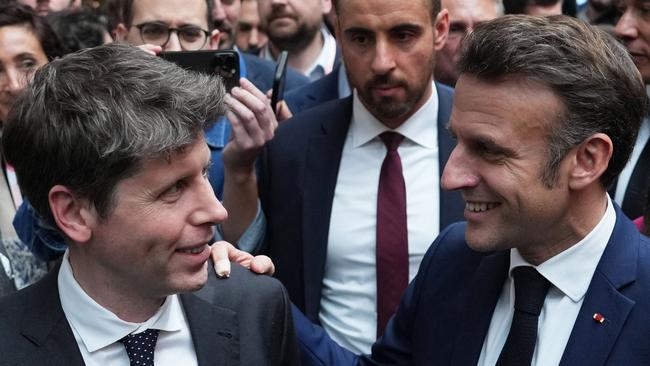
On X, he tweeted at Musk: ‘No thank you but we will buy twitter for $US9.74 billion if you want.’ That’s a tiny fraction of the $US44 billion Musk spent to acquire Twitter in 2022.
Musk later in the week said he’d abandon the bid if Altman keeps Open AI non profit.
On Friday, OpenAI said in a letter to Musk’s lawyer that the company and the board reject the $97.4 billion proposition.
“OpenAI is not for sale, and the board has unanimously rejected Mr. Musk’s latest attempt to disrupt his competition,” said Bret Taylor, chairman of OpenAI’s board. “Any potential reorganisation of OpenAI will strengthen our non-profit and its mission to ensure AGI benefits all of humanity.
OpenAI’s rejection “comes as no surprise,” said Musk’s lawyer, Marc Toberoff.
Musk had said he wanted to save the company from the dangerous direction in which his co-founder had taken it.
“It’s time for OpenAI to return to the open-source, safety-focused force for good it once was,” he pronounced. “We will make sure that happens.”
Altman responded with his signature brand of nice-guy savagery: “Probably his whole life is from a position of insecurity,” he said on Bloomberg TV. “I feel for the guy. I don’t think he’s a happy person. I do feel for him.”
– Tom Dotan contributed to this article.
Dow Jones Newswires





To join the conversation, please log in. Don't have an account? Register
Join the conversation, you are commenting as Logout